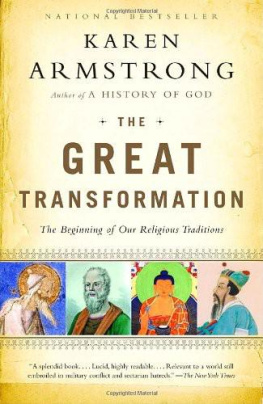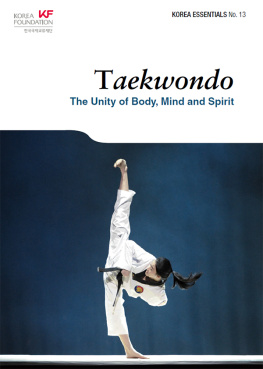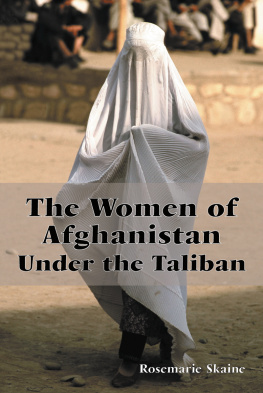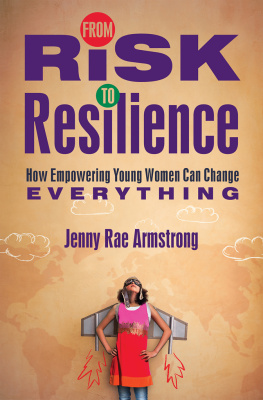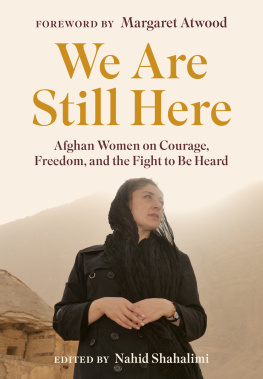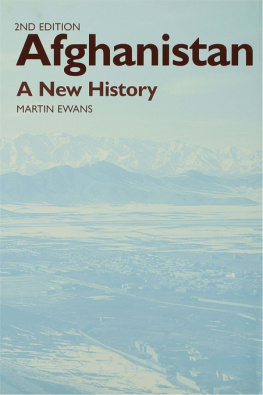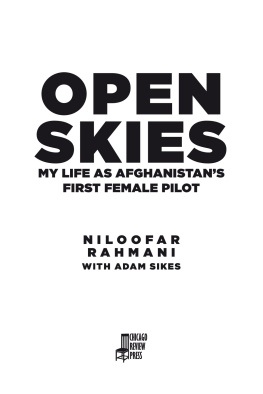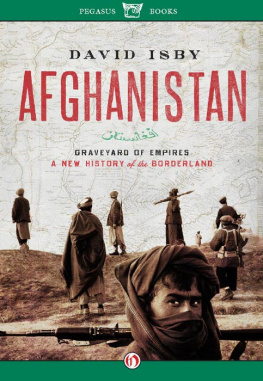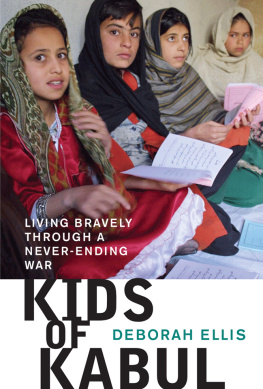Praise for Veiled Threat: The Hidden Power of the Women of Afghanistan by Sally Armstrong
This powerful book reminds us that ordinary people, given the chance, can understand complex international situations allegedly reserved for expertsand perhaps influence them if we choose.
Winnipeg Free Press
Emotionally demanding reading a passionate portrayal of recent events in Afghanistan from the perspective of a committed, feminist outsider.
The Hamilton Spectator
A powerful book that shows how women can change the world.
Toronto Sun
Veiled Threat is to be applauded for its emotionally gripping disclosure of the suffering and injustices faced by a people who have endured centuries of serial invasions.
The Globe and Mail
Sally Armstrong views Afghanistan through the eyes of its women. Her story [of Dr. Sima Samar] is one of hope and triumph, as are most of the tales in this straightforward, uplifting volume.
The Washington Post
Armstrongs taken on a righteous cause and does it justice.
Publishers Weekly
Both a cautionary tale and a celebration of women carrying on under the most trying of circumstances.
Amazon.ca
A compelling read.
Edmonton Journal
Veiled Threat is a well-researched work, rich in cultural and political context.
The Kingston Whig-Standard
PENGUIN CANADA
BITTER ROOTS, TENDER SHOOTS
SALLY ARMSTRONG is an Amnesty International award-winner, a member of the Order of Canada, and a contributing editor at Macleans. She has covered conflicts from Bosnia and Somalia to Rwanda and Afghanistan. Armstrongs bestselling book Veiled Threat: The Hidden Power of the Women of Afghanistan was published in 2002.
ALSO BY SALLY ARMSTRONG
VEILED THREAT: THE HIDDEN POWER
OF THE WOMEN OF AFGHANISTAN
PENGUIN CANADA
Published by the Penguin Group
Penguin Group (Canada), 90 Eglinton Avenue East, Suite 700,
Toronto, Ontario, Canada M4P 2Y3 (a division of Pearson Canada Inc.)
Penguin Group (USA) Inc., 375 Hudson Street, New York, New York 10014, U.S.A.
Penguin Books Ltd, 80 Strand, London WC2R 0RL, England
Penguin Ireland, 25 St Stephens Green, Dublin 2, Ireland
(a division of Penguin Books Ltd)
Penguin Group (Australia), 250 Camberwell Road, Camberwell, Victoria 3124, Australia (a
division of Pearson Australia Group Pty Ltd)
Penguin Books India Pvt Ltd, 11 Community Centre, Panchsheel Park,
New Delhi 110 017, India
Penguin Group (NZ), 67 Apollo Drive, Rosedale, North Shore 0632, New Zealand
(a division of Pearson New Zealand Ltd)
Penguin Books (South Africa) (Pty) Ltd, 24 Sturdee Avenue, Rosebank,
Johannesburg 2196, South Africa
Penguin Books Ltd, Registered Offices: 80 Strand, London WC2R 0RL, England
First published in a Viking Canada hardcover by Penguin Group (Canada),
a division of Pearson Canada Inc., 2008
Published in this edition, 2009
1 2 3 4 5 6 7 8 9 10 (WEB)
Copyright Sally Armstrong, 2008
Quotation from Dale Spenders For the Record: The Making and Meaning of Feminist Knowledge
(London: Womens Press, 1985) used with permission.
Manouchehr Sadat Noury translation of Rabbia Balkhis poem Love used with permission.
Quotation from Safia Siddiqis poetry used with permission.
Permission given by Jill Frayne to quote her mother, June Callwoods admonition, If you see
an injustice being committed, youre not an observer, youre a participant.
All rights reserved. Without limiting the rights under copyright reserved above, no part of this
publication may be reproduced, stored in or introduced into a retrieval system, or transmitted in
any form or by any means (electronic, mechanical, photocopying, recording or otherwise), without
the prior written permission of both the copyright owner and the above publisher of this book.
Manufactured in Canada.
LIBRARY AND ARCHIVES CANADA CATALOGUING IN PUBLICATION
Armstrong, Sally, 1943
Bitter roots, tender shoots : the uncertain fate of Afghanistans women / Sally
Armstrong.
Includes index.
ISBN 978-0-14-316998-7
1. WomenAfghanistanSocial conditions21st century. 2. Women
Afghanistan. 3. WomenLegal status, laws, etc.Afghanistan. I. Title.
HQ1735.6.A744 2009 305.4209581090511 C2009-904641-5
Except in the United States of America, this book is sold subject to the condition that it shall
not, by way of trade or otherwise, be lent, re-sold, hired out, or otherwise circulated without the
publishers prior consent in any form of binding or cover other than that in which it is
published and without a similar condition including this condition being imposed on the
subsequent purchaser.
Visit the Penguin Group (Canada) website at www.penguin.ca
Special and corporate bulk purchase rates available; please see
www.penguin.ca/corporatesales or call 1-800-810-3104, ext. 477 or 474
FOR THE TOMORROW GIRLS
JULIA RISHOR, AGE THIRTEEN MONTHS; ALAINA
PODMOROW, ELEVEN YEARS; TAMANNA NAVEED,
SEVENTEEN YEARS
TO YOU WE THROW THE TORCH
CONTENTS
INTRODUCTION
WHO KNEW?
IT WAS 7 A.M. ON A MARCH MORNING in 2003 when my cellphone rang in the Red Roof Inn in Manhattan. I was in New York for the American launch of my book Veiled Threat: The Hidden Power of the Women of Afghanistan. The skyscraper next door was blocking the early morning light, so it was still dark in my hotel room when I fumbled around to find the phone and answered in a rather groggy, post-launch-party voice. The caller, from Radio Canada, asked if I would do an interview. Probably, I replied. But whats it about? The military has massed forces on the border between Pakistan and Afghanistan, she told me. Theyre going after Osama bin Laden. They say hes in a cave near Kandahar. And some people here say you know exactly where he is.
I sat on the edge of the bed, listening with incredulity, and then remembered a speech I had delivered in Montreal a few months earlier. I had told the audience about a visit I made to Kandahar in January 2001 to interview a group of courageous women who shared the ghastly details of their lives under Taliban rule. They wanted their story to reach women outside Afghanistan who might help them with the human rights catastrophe they were living with.
In the course of our conversation, they told me about Osama bin Laden, a man who was hardly a household name at the time. They told me he was ruining their country, hijacking their religion, and feeding the Taliban a steady diet of medieval, theocratic dogma. They took meall of us wearing all-enveloping burkasto see his home in Kandahar. It was a palatial estate, with marble pillars, a grand tiled entrance, and lush gardensa shocking contrast to the dirt-poor, drought-ravaged city around it. The women told me that bin Laden had four other homes such as this one in other Afghan cities. Then they said, But he doesnt work in any of these houses. He works in a cave thirty kilometres north of Kandahar City.
When 9/11 forced the world to pay attention to Afghanistan, a country that had been abandoned by the international community at the end of the Cold War, I thought the invading armies would go directly to the cave north of Kandahar and capture the worlds most wanted man. After all, if I knew where he was, everyone else must know, too. But the soldiers didnt go there. They went north, to Mazar-e Sharif and Kunduz, and to Gardez in the east. They tracked along the fractious border with Pakistans North-West Frontier province. Not surprisingly, they didnt find the mastermind of the attacks on the World Trade Center.
I shared that story with the reporter on the telephone. Oh, she said. I wonder why no one ever looked in that cave. Why, indeed. Evidently even the CIA wasnt smart enough to ask the women where Osama bin Laden was.
Next page


